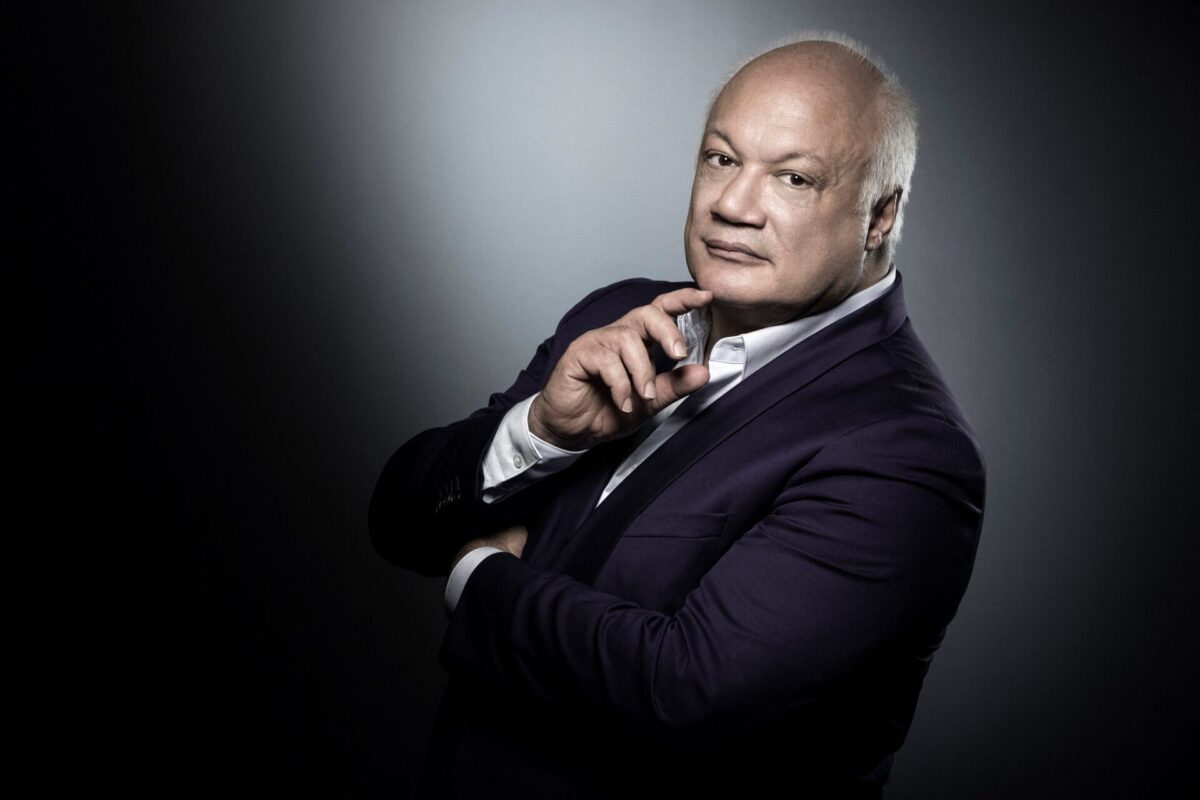
Menu
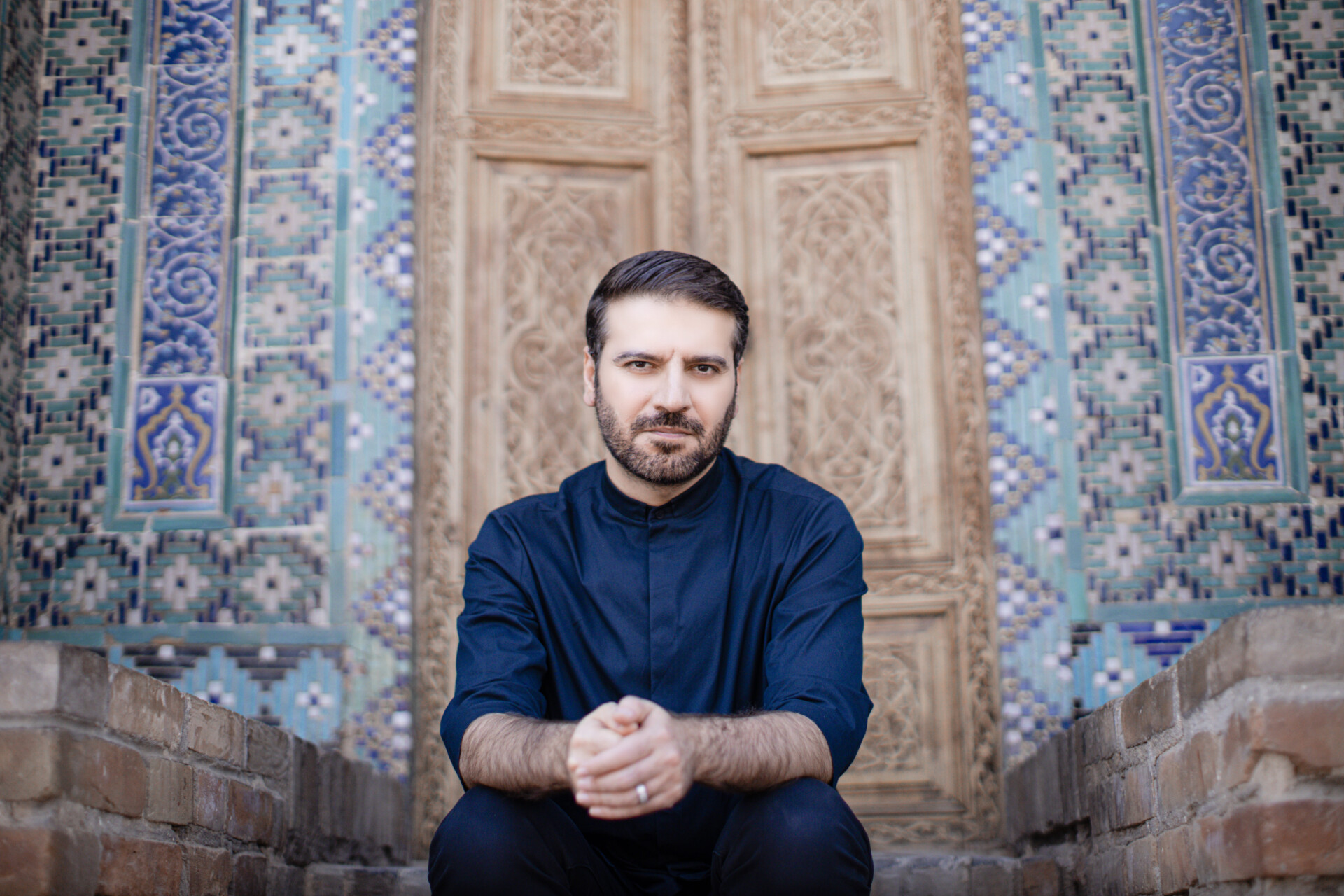
The historical Bab Al Makina plaza in the mediaeval Moroccan city Fez provided a suitable backdrop for the long awaited concert of the British icon. While the artworks illuminating the sandy stone walls provoked the feeling of an unforgettable experience, visitors were invited to witness a rare musical dialogue unveiling beautiful traditions from different parts of the world.
Followers of the 27th edition of the Festival of Sacred World Music were already familiar with the music of composer and vocalist Sami Yusuf as it was his third time to perform in the colorful Kingdom of Morocco – a country he is very fond of and which he even calls his second home.
This May the festival, a nine day celebration bringing together talented international artists, had for its theme ‘In Quest of the Spirit of al-Andalus’. On the second day of the festival, May 25, Yusuf performed alongside an ensemble of twenty notable musicians and vocalists from countries such as Morocco, Spain, France, Turkey, Azerbaijan, and Iran.
Music is a means of communicating without language. It’s a primal expression of the human spirit. Each civilization, each culture has developed its own musical language that conveys its ethos.
Sami Yusuf
The evening began with emotional Spanish vocals emerging from silence, soon to be accompanied by delicate Moroccan Sufi rhythms. The intimate Andalusian mawwal (Arab vocals) combined with flamenco melodies redirected the mood of the listeners further away from the outer world and connected them back to nature.
“Music is a means of communicating without language,” Yusuf says to VOLZIN. “It’s a primal expression of the human spirit. Each civilization, each culture has developed its own musical language that conveys its ethos. Even if you have a little familiarity with music from Ireland, Japan, India or Spain, when you hear it, you will immediately associate it with the art or even the landscape of that country.”
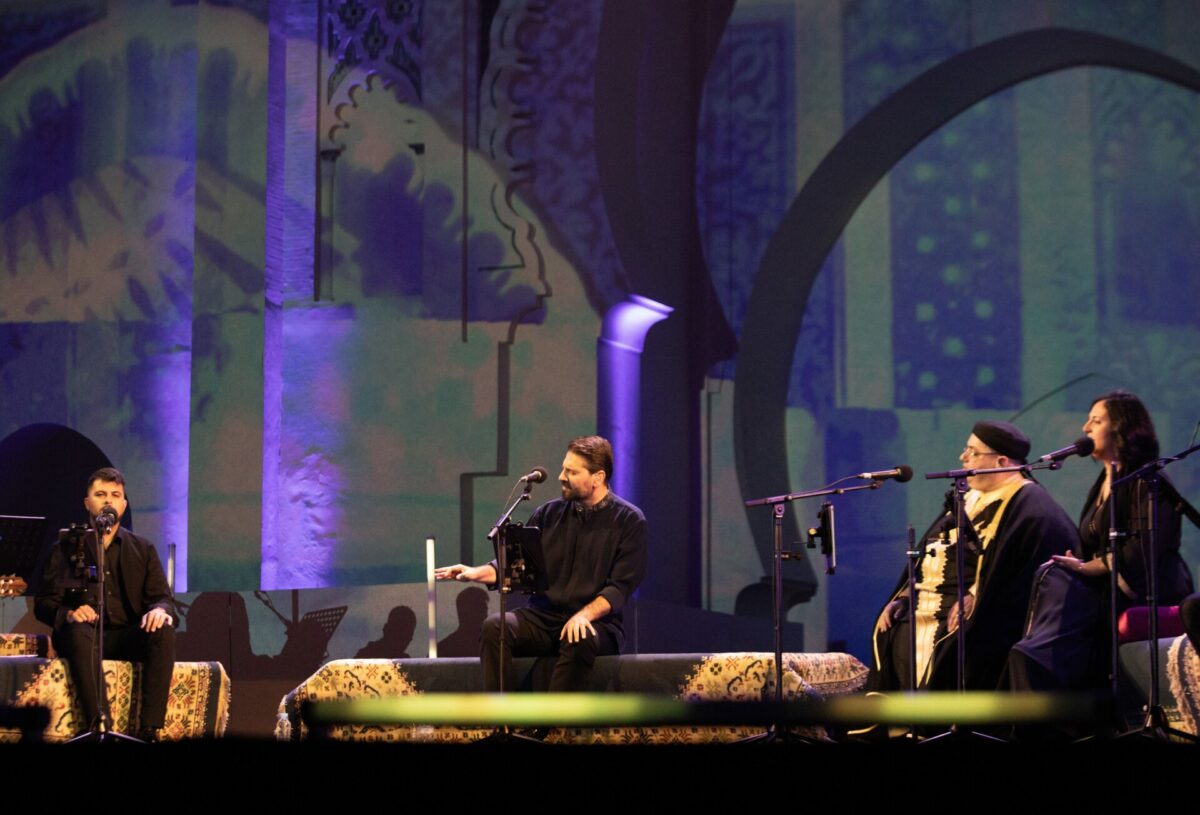
Born into a musically talented family with roots in Azerbaijan, he recalls that while growing up in London he was not like other teenagers of his age, as he preferred to spend almost all of his time practicing his musical skills. The 12-year old Yusuf was as comfortable playing the Middle-Eastern oud (string instrument) as the piano. His dream was to become a music composer and to craft art that incorporates both the elements of the musical genres he grew up with, with the Western classicals.
Yusuf’s first album was released in 2003 and with its release he quickly gained international recognition. Though it was never his wish to become famous, Yusuf is not unused to massive crowds: he recently gave two sold-out concerts in the Paris Philharmonic, and stood for a 250.000 crowd in Istanbul.
Now the well-loved composer is taking the next big step in his career through his phenomenal When Paths Meet concert series in which he pays homage to musical traditions all over the world. What makes the series attractive is how each composition has absorbed the mystical poetry of many cultures, embracing the centuries old spiritual wisdom of the Andalusian philosopher Ibn Al-Arabi, the Spanish mystics Teresa de Jesus and San Juan de la Cruz among others.
“I find inspiration everywhere – in mystical poetry, in music traditions from around the world, and in nature. For instance, the piece One, which I performed during the premiere of my When Paths Meets concert series in Amsterdam two years ago, was inspired by a dream I had after reading the German mystic Hildegard von Bingen's writings, prompting me to start composing the parts. Often, I envision the entire work first and then proceed to develop all its elements.”
Yusuf cherishes the memories of his musical experience in Amsterdam and he even calls the main capital of Holland one of his favorite places in Europe where he likes to spend time. “My ensemble was joined by Cappella Amsterdam and the Amsterdam Andalusian Orchestra, and all the musicians put their hearts and amazing talent into the music. The audience was incredibly receptive to the music.”
The concert in Fez marked the third performance from the When Paths Meet series. As the lightshow turned the venue into a sky full of stars, the audience was mesmerized by the enchanting piece En al-Ándalus which takes its inspiration from an Arab classical song, Fi Layali. In Un Corazón Bailando, fiery flamenco melodies and Turkic rhythms bring another ecstatic dimension to the performance, while Moroccan vocalist Ismail Boujia brings the mystical poetry from the 12th century Andalusian Sufi poet Abu Madyan to a new level.
An experience of sacred art is like an encounter with breath-taking nature: it holds the essential memories of a people; they tell the stories of the heart.
Sami Yusuf
Within his compositions Yusuf finds it important to emphasize the beauty of each musical tradition in order to realize the underlying unity that transcends them. The mastery of sacred art forms the cornerstone of his work: “Through the unique beauty of our traditions I want to arrive at a transcendent space of unity. It’s the space where the essence is revealed and where it acts as a mirror reflecting all the others. And it is the sacred art of these traditions that connects human beings to the meaning and purpose of life. An experience of sacred art is like an encounter with breath-taking nature: it holds the essential memories of a people; it tells the stories of the heart. And because they originate from a place in the human soul that understands the oneness of humanity underlying its multiplicity of forms, the arts – music in particular – can pierce the veils of separation between people. And that end of separation is greatly needed in our time.”
While his music is attracting a mainly younger audience, Yusuf expresses his concern about how the younger generation is often too distracted by Western pop tunes, which brings them further away from their own roots: “The general lack of quality of pop songs that have no relevance to the land or the people where they are now the dominant sound is having a deleterious effect on this generation’s desire to know and carry on their own musical traditions.”
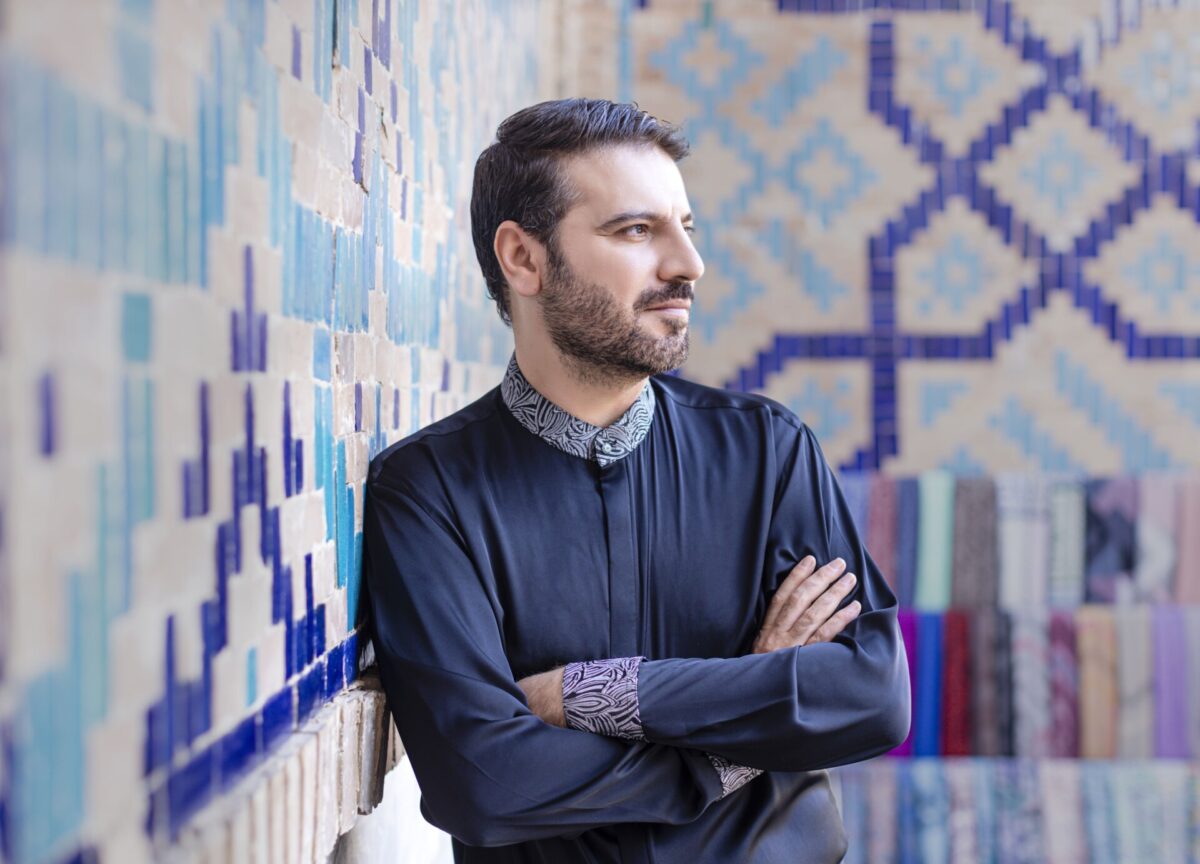
Another issue, he says, is that a lot of the knowledge of the wonderful classical arts – from Persia, to Azerbaijan, to the Indian subcontinent – has faded away due to the legacy of colonialism, as well as the desire on the part of many formerly colonized peoples to absorb and emulate Western music. And yet the popular composer has an optimistic look as he sees that there is a growing interest among Westerners in the music traditions of other cultures. “My audience is expanding rapidly across Europe and the Americas, and I see the same happening among followers of artists performing their traditional repertoire.”
Enthusiastic cheers reverberated through the venue when the talented Moroccan vocalist Nabyla Maan started singing in the Amazigh language, one of the native languages of Morocco. The richness of the Amazigh culture, Yusuf says with a warm smile, intrigued him enough to learn more about its language. He wishes that more people in the Maghreb region will understand how fascinating the Amazigh culture is.
“The Amazigh language is the native language of roughly one-third of Moroccans. As you know, at my concerts I always launch new content and to the extent possible I include local musicians and local languages. It is one way that I seek to preserve and promote traditions. And in the case of the Amazigh language, which thankfully is experiencing a revival, I was very fortunate to have musicians with me in Fez who were able to perform in this essential language of the region.”
What stood out during the concert was how each melody – whether it was the golden Spanish lyrics beautifully sung by vocalist Israel Moro, or the deeply meditative sounds from Central Asia and the Turkic world – seemed to unite with the others which in turn resulted in a brilliant ensemble precision. Yusuf has proven once again that the artistic creativity of his work is unparalleled in the world of music composers.
“The composition and the arrangement form the blueprint, the vision I have for a performance. And then there is a synergy between myself and the musicians I work with. I have had the opportunity, really the blessing, to work with remarkably talented people who have succeeded in bringing my vision to life. There is always enormous respect among the musicians and enthusiasm to work together and expand their own boundaries artistically speaking.”
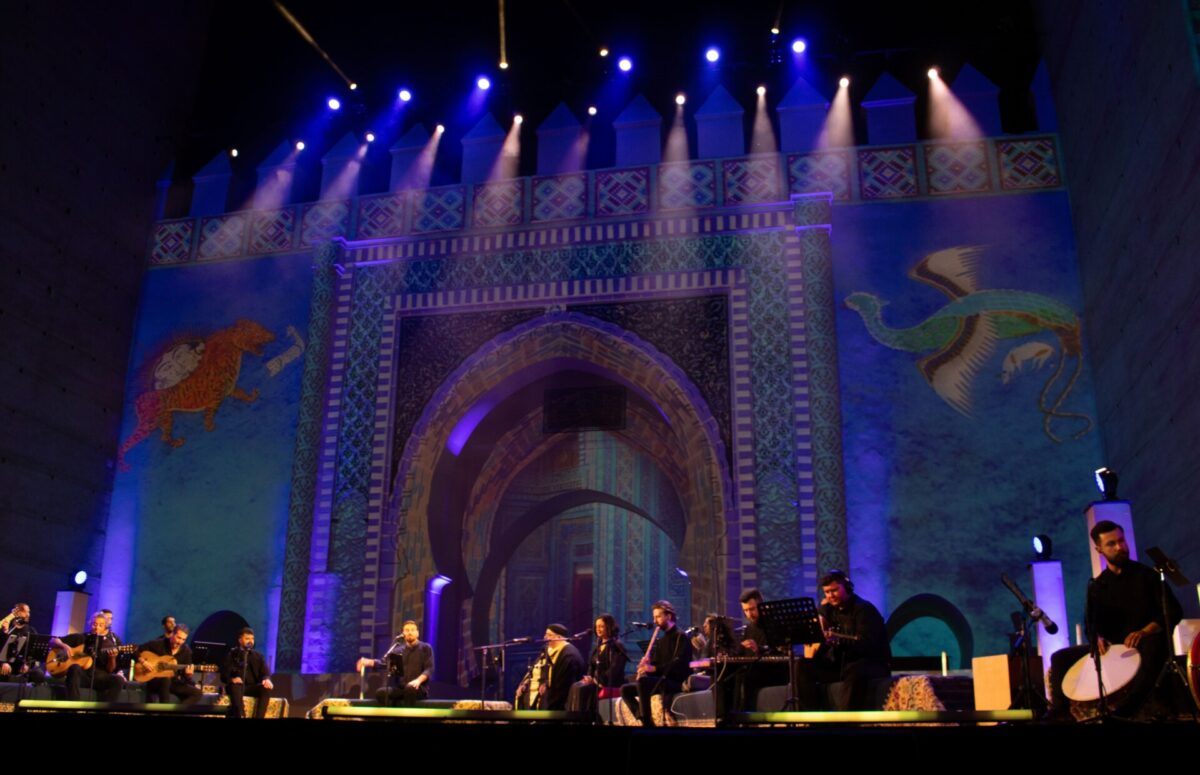
Yusuf has been an icon in the music industry for more than twenty years, having sold over 45 million albums and more than a billion downloads so far. How does the international star, who has a real appreciation for his fans, protect himself against being caught up in the world of fame?
“I appreciate immensely all the comments from people who find meaning in the music whether they are music critics for major agencies or individuals who have come across my music for the first time and are reacting to it. I feel as if we are on a journey together, always moving deeper into the essence of the art. If I’ve learned anything from my study of traditional masters, it’s that one has to devote oneself to the art, and never use the art to elevate oneself.”
If I’ve learned anything from my study of traditional masters, it’s that one has to devote oneself to the art, and never use the art to elevate oneself
Sami Yusuf
As thousands of fans started to clap and sing during the much-loved traditional Moroccan song Fiyyashiyya at the end of the concert, Yusuf and his team of musicians left the audience fascinated long after the last note had been played. For many in the crowd it was “a dream come true” having finally seen a live performance of the internationally recognized musician, and some already wondered where his next concert would take place.
As a final message, Yusuf would like to say: “I would want people to find in my works something of the unfathomable depth, beauty, and wisdom at the heart of world music traditions, and to remember me as someone whose musical path was dedicated to sharing this vibrant treasure and to passing it on to future generations.”
Sami Yusuf’s instrumental composition The Meeting is a deeply moving and intimate work. Direct and non-linear, the melodies and rhythms sustain and support one another flawlessly as the music moves fluidly between Western and Middle Eastern modal systems. Solos by Huseyin Can Pala on baglama, Eyüpcan Açikpazu on ney, Onur Cicin on qanun and Hasan Hekimoglu on oud circle each other to create an embracing ambience where each melodic line is a subtle gem, strong and fragile in equal measure. Recorded live at The Holland Festival. Listen to the full album here.
A comprehensive collection of Sami Yusuf's work is available on the music streaming service Spotify. The presentation of his When Paths Meet album was at the Holland Festival and can be listened to via the playlist below.
If you enjoyed reading this article, please consider supporting the team behind VOLZIN Magazine with a donation. This enables us to create more stories about art, culture and spirituality. Please use this link or scan the QR-code. The name of our journalistic Foundation is called Zingeving & Media and this name will be visible in your payment description. Thank you.
